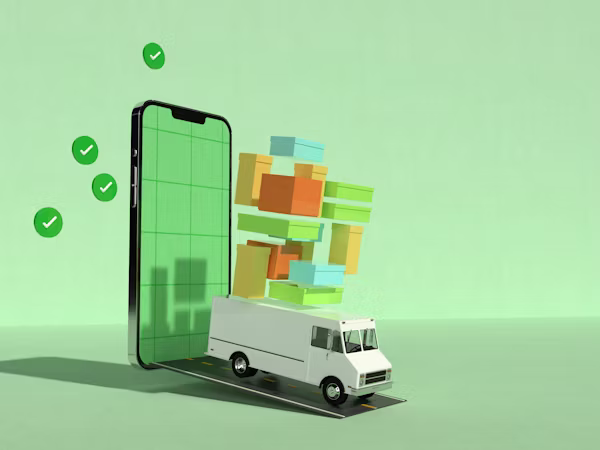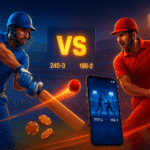The delivery industry is moving faster than anyone could have envisioned. People now expect everything, from food and groceries to parcels and pharmacy orders, to show up at their doorsteps in record time. It is those businesses that are able to deliver with real efficiency and reliability, and at scale, that win.
But behind all that convenience lies something complex: scalable technology. A multi-delivery app can’t just support thousands of orders, a multitude of vendors, and real-time tracking by chance. It is built on smart design with powerful features that grow with your business.
Let’s explore the main features of multi-delivery apps that make them truly scalable and future-ready.
Modular Architecture for Flexibility
First, a scalable delivery app would include a modular architecture: a structure that separates the application into independent yet connected components, each taking care of small tasks such as user management, payments, tracking of delivery, or analytics.
The modular approach does allow developers to:
- Improvement means renewal or adding new features without changing the entire system.
- Scale-specific services independently, like order processing and notifications
- Fix bugs faster, deploy updates faster to reduce downtimes.
Cloud-Based Infrastructure
It should be pointed out that scalability is highly dependent on infrastructure, and here is where cloud technology becomes very important. Traditional server settings cannot support sudden peaks of load or unpredictable growth. When working with AWS, Google Cloud, or Azure, dynamic scalability is possible, with resources growing and shrinking automatically with traffic.
Cloud-based architecture has many advantages, including:
- It automatically scales the capacity as the user base grows.
- Cost efficiency: You only pay for what you use.
- Reliability – cloud servers have high uptimes and disaster recovery.
- Global reach: by deploying services closer to the user for faster response times.
Real-time Tracking and Updates
Real-time tracking isn’t a feature; it’s an expectation. Customers expect to see exactly where their order is right now, and precisely when it’s going to arrive.
Scalable delivery applications use real-time GPS integrations to track drivers, show instant updates to customers, and monitor fleet performance by admins. It builds transparency, cuts down customer support, and helps improve customer satisfaction.
For it to be scalable, your app must:
- Fetch location information live via a variety of efficient APIs.
- Support thousands of concurrent GPS connections.
- Update maps and notifications in real time.
Advanced Order Management System
A scalable multi-delivery app has to handle lots of orders coming from many users, vendors, and delivery partners at the same time with efficiency.
Such a process is automated and organised in an advanced OMS system, which allows for order assignment, status management, cancellation, and prioritisation related to deliveries concerning either location or urgency.
Important features include:
- Smart algorithms automatically assign each delivery to the closest driver with automated dispatching.
- Route optimisation: It saves time and fuel by finding the shortest route.
- Real-time status updates will be provided: both to customers and vendors.
- Analytics & reporting: Basically, it will help the company understand the performance level and find the breaking points.
Scalable Database Design
Your database is the heart of every app, and if it’s not built for scale, performance is going to lag.
In scalable delivery applications, distributed databases handle higher volumes of data without performance degradation. Solutions like MongoDB, PostgreSQL, or Firebase deal with data in an effective way: fast access and real-time syncing.
A well-structured database ensures the following:
- Orders load quickly, even under the heaviest traffic.
- More information can be securely accessed.
- Reports and analytics are instantly generated.
- The app is responsive when the user count increases.
Multi-Vendor and Multi-User Support
Scalable delivery applications have to support multiple vendors, such as restaurants, stores, pharmacies, and different user roles like admin, driver, customer, and vendor.
That is to say, there will necessarily be a multi-role architecture that separates different access levels and functionalities according to every kind of user. For instance,
- Vendors manage their menus or products, view orders, and track performance.
- Drivers receive assignments, track deliveries, and send status updates.
- Customers can place orders, follow up on the status of their applications, and provide ratings to services.
- Admins can manage everything in a single dashboard.
Efficient Notification System
Communication forms an integral part of the delivery operations. In fact, through an effective notification system, immediate alerts can be facilitated to customers, vendors, and drivers with regards to orders, deliveries, and offers.
Scalable applications make use of asynchronous messaging systems like Firebase Cloud Messaging or AWS SNS to handle high volumes of notifications. These tools ensure that:
- Instant updates without overloading servers
- Multi-platform support – Android, iOS, Web
- User event-based customised notifications
This keeps the users informed and involved, even when the number of active users grows.
Secure and Scalable Payment Gateway
Online payment processing is a feature of vital importance in any multidelivery app. As it keeps on growing, so does the number of transactions, and the notions about security and reliability become absolute.
To be called a scalable payment gateway, the system should possess the following features:
- Various payment methods include: credit/ debit cards, wallets, UPI, and cash on delivery.
- Encryption: end-to-end, to protect user data and transactions.
- Seamless refund and settlement processes, especially when the volume of orders is high.
Analytics and Data Insights
Scalable delivery applications don’t just deliver orders; they deliver insights.
A built-in analytics dashboard provides the business with a 360° view into operations: order trends, delivery times, driver performance, revenue growth, and customer behavior.
Advanced data tracking enables:
- Peak-hour identification and resource optimisation
- Detection of delays in delivery; enhancing efficiency.
- Analysing customer retention and satisfaction
- Making data-driven business decisions
Automated Testing and Deployment
A scalable system has to be in continuous improvement, and for continuous improvement, automation is the only key. Automated testing ensures that each new update or feature works correctly and doesn’t alter the live app.
Scalability is further ensured by:
- Continuous Integration / Continuous Deployment Pipelines for Faster Rollouts
- Automated regression testing to find problems much earlier
- Versioning systems, such as Git, for collaborative development
Performance Monitoring and Load Balancing
Once it goes live, the application needs to be kept under continuous monitoring so that its performance scales with growing demands. Tools such as Datadog, New Relic, and AWS CloudWatch provide real-time data on API speed, load times, and server usage.
It performs load balancing so that no particular server is overloaded, with a view to distributing traffic across the servers for stability and quicker responses.
At Rin Technologies, we include a monitoring system in each of our projects, ensuring reliability and preventing bottlenecks before they may affect users.
The Bottom Line
Any delivery app is relatively easy to build, but building one that scales is a different matter altogether – that’s where the real expertise comes in. Scalability will let your platform grow with your business, handle spikes in demand smoothly, and deliver consistently great user experiences.
At Rin Technologies, we build scalable, secure, high-performance delivery applications that are engineered for growth. Be it a startup with its very first platform or an enterprise with expanded delivery networks, our team is committed to the design of systems that grow with you, not against you.
Ready to build a delivery app to meet today’s challenges and grasp tomorrow’s opportunities? Contact Rin Technologies. Let’s build something that lasts!



